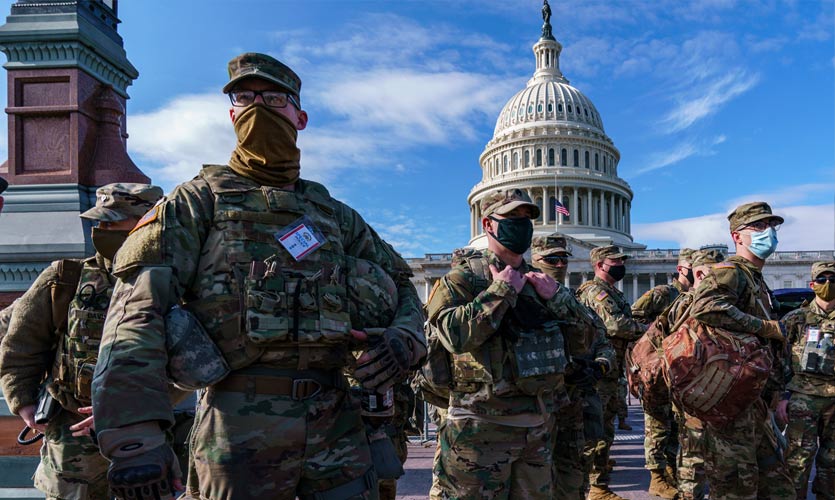The Pentagon, on Monday, stopped short of creating a list of extremist groups that its military officers cannot join, and declined to say explicitly whether refusing to view President Joe Biden as America’s legitimate leader was a violation of policy.
This development stands in contrast to the December 20 announcement that revealed new rules prohibiting service members from actively engaging in extremist activities. It comes nearly a year after some current and former service members participated in the US Capitol riot that triggered huge political and security concerns.
As per the Pentagon, there is substantive evidence to prove that there are fewer than 100 military members who are known to have been involved in cases of extremist activity in the past year. The department has also warned that this number may grow given the recent spike in cases of domestic violence, particularly among veterans.
Following the deadly attack at the US Capitol last year, the Biden administration that came to power after defeating Donald Trump and took office on January 20, has spent much of the year working to clarify its definition of extremism and what kinds of military participation in extremist activity to explicitly prohibit, the results of which were unveiled on Monday.
The new policy lays out the banned activities as per the new definition in detail, ranging from advocating terrorism or supporting the toppling of the government to fundraising or rallying on behalf of an extremist grou, or “liking” or reposting extremist views on social media.
At a time when the Biden administration has been witnessing a rise in the number of cases of extremism involving military members, including in the domain of Islamophobia or racial discrimination, the decision to stop short of creating a list of extremist groups that military personnel cannot join is rather surprising and shocking.
“The Pentagon stopped short of prohibiting membership in any group, from the Proud Boys to the Oath Keepers and the Ku Klux Klan, and avoided weighing in on specific scenarios, like a soldier’s view of the legitimacy of Biden as president,” read a Reuters report.
Speaking at a news briefing, Pentagon Spokesman John Kirby said, “If we got into coming up with a list of extremist groups, it would be only probably as good as the day we published it because these groups change.”
Officials said that they did not plan to regularly monitor Twitter, Facebook and other social media sites, raising questions about whether the new policy was a substantial departure from existing screening of US service members at key moments in their careers, including recruitment.
Adam Smith, the top Democrat on the military oversight committee in the House of Representatives, praised the updated policy and tweeted: “Protecting our service members from the threat of violent extremism is far too important for partisan misinformation.”
Read more: Taliban Holds Talks With The European Union In Qatar, Presses EU Bloc For Aid
The Pentagon’s announcement came just weeks after the Pentagon’s Inspector General cited 294 allegations of extremist activity by US service members, including 10 allegations of trespassing at the US Capitol on January 6, and 102 allegations of participation in domestic extremist violence.
Blaming inconsistent tracking, the Inspector General blamed the Department of Defense for failing to consistently track the data in a uniform way. He said, “Until the DoD establishes DoD-wide policy for tracking and reporting allegations of prohibited activities, the DoD will continue to have inconsistent tracking… and difficulty validating the accuracy of the data.”
Manifesting that the cases of involvement of service members in cases of extremism are rare, John Kirby said that officials had found about 100 cases in total. However, he acknowledged that the Pentagon needed to do a better job at collecting data.










